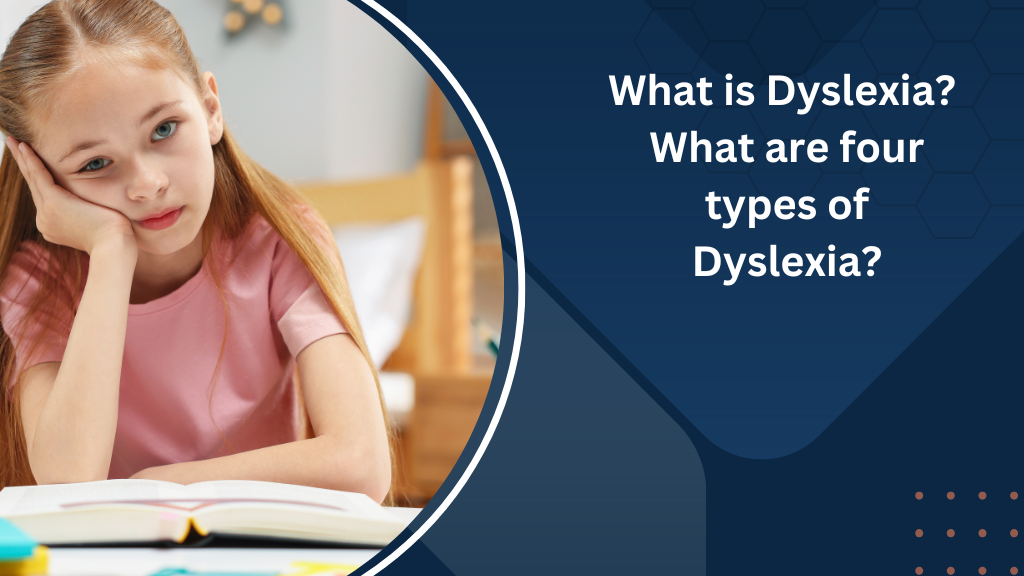What is Dyslexia? What are four types of Dyslexia?

Types of Dyslexia Explained – Early Diagnosis & Support at Kids Neuro Clinic Dubai
Every child has a unique learning journey – some grasp reading and writing with ease, while others face challenges that require understanding and support. Dyslexia is one such common learning difference that affects children worldwide. There are four types of dyslexia: surface, rapid naming, double-deficit, and phonological dyslexia.
Dyslexia affects reading fluency, spelling, and comprehension, but it does not reflect a child’s intelligence. When your kids face persistent challenges in reading and writing, it’s time to seek expert advice.
Experts at Kids Neuro Clinic help your children learn and thrive academically and emotionally.
What is Dyslexia?
Dyslexia is a neurological learning difference that affects about 1 in 10 children worldwide, influencing how the brain recognizes, decodes, and processes written language. Imagine reading a sentence where letters seem to shift or words blur together — that’s how dyslexia can feel for a child.
It’s not about low intelligence or poor effort; it’s a difference in how the brain connects sounds to symbols. With proper guidance and structured learning, Kids Neuro Clinic helps children with dyslexia become confident and capable readers who understand the world in their own unique way.
Symptoms of Dyslexia in Children
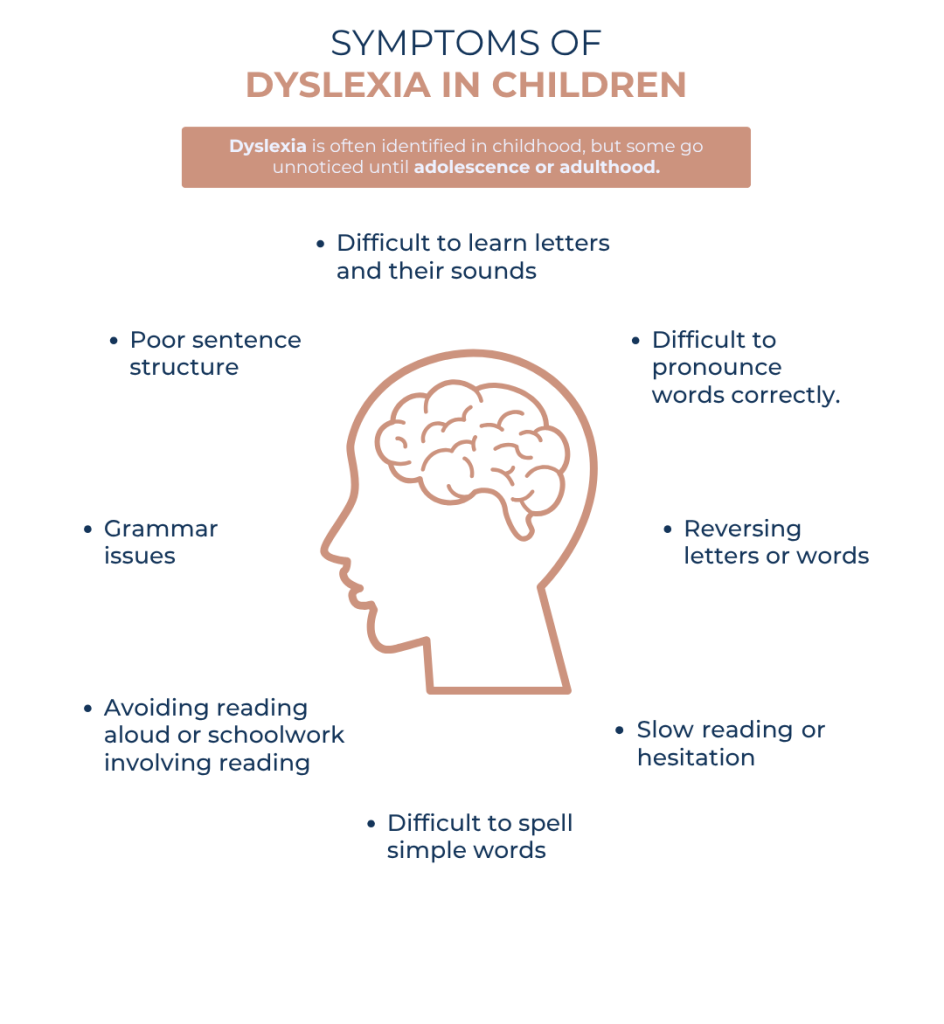
Understanding Types of Dyslexia and its impact on children
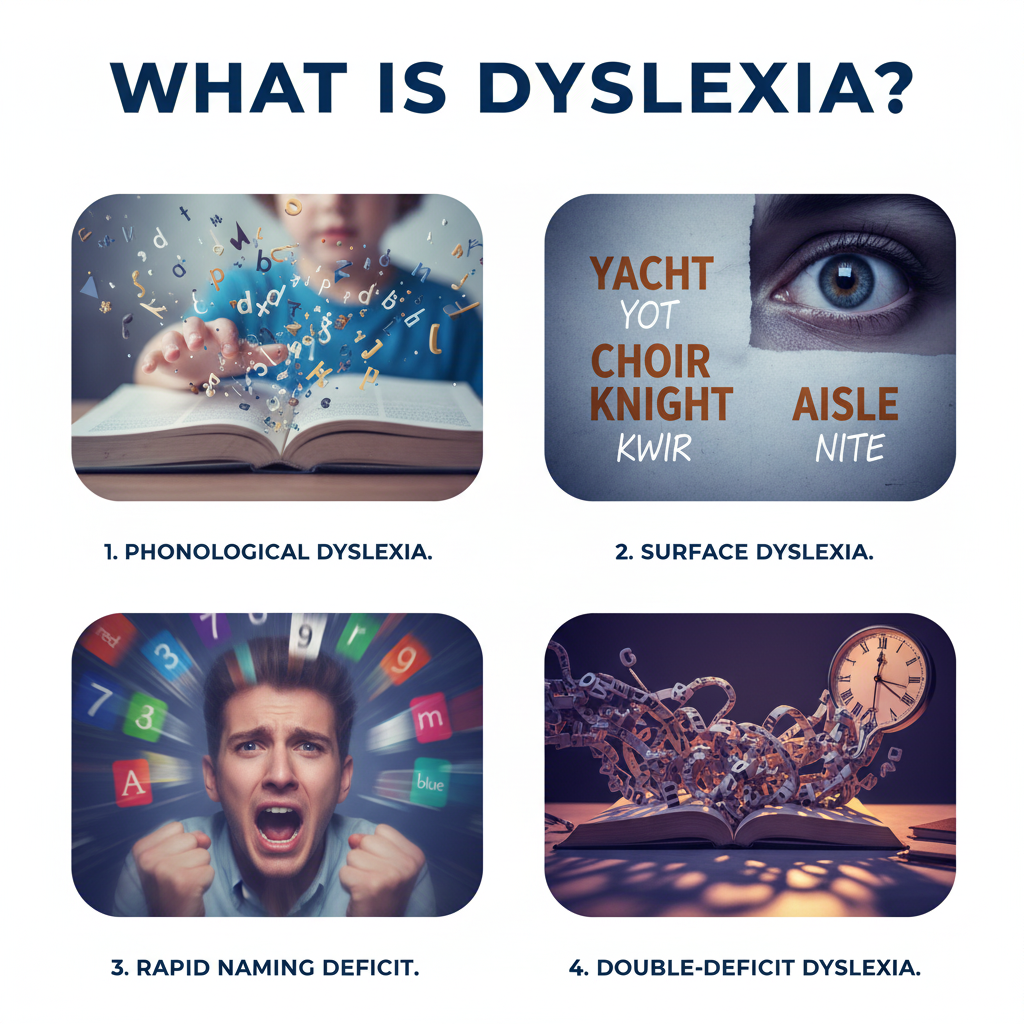
Dyslexia is primarily divided into developmental and acquired forms. Developmental Dyslexia occurs at birth, whereas acquired dyslexia occurs due to injury or illness, such as brain trauma, stroke, or dementia.
Dyslexia is further subcategorized into four types based on symptoms such as difficulty breaking down words, understanding their sounds, or recognizing printed words.
Type 1 – Phonological Dyslexia
Phonological dyslexia is the most common type of dyslexia. It involves difficulties matching symbols to sounds. Children with phonological dyslexia find it difficult to break words into basic sound units.
Challenges – Difficult to learn sounds, letter combinations, unfamiliar words, and slow reading.
Support strategies – The support strategies help children process sounds and connect them to letters. For example, Sound segmentation exercises, structured phonics instructions, and multi-sensory learning tools. At Kids Neuro Clinic, we use evidence-based literacy programs and personalized learning sessions to strengthen phonemic awareness.
Type 2 – Surface Dyslexia
Children with surface dyslexia fail to recognize words by sight. They can sound out words phonetically but struggle with recognizing words that don’t follow standard pronunciation rules.
Challenges – Difficult to read new words by sight, spell, and avoid reading activities.
Support strategies – The strategies help children improve their visual word memory and reading fluency. For example, visual word mapping and word pattern training. Our experts follow sight word recognition and reading fluency practice to build lasting reading confidence.
Type 3 – Rapid Naming Dyslexia
Children with rapid naming dyslexia find it difficult to quickly identify numbers, letters, and colors. This type of dyslexia impacts both reading and processing speed.
Challenges – Difficult to retrieve words, slow response, using gestures instead of words, and substituting words.
Support strategies – The strategies strengthen the brain’s language processing and access to verbal information. For example, language processing games and timed naming activities. At Kids Neuro Clinic, we utilize customized cognitive and language exercises to help children enhance their memory and processing speed.
Type 4 – Double Deficit Dyslexia
Children with double deficit dyslexia face both decoding and fluency challenges. It’s a severe form of dyslexia that combines rapid naming dyslexia and phonological dyslexia.
Challenges – difficulties in reading speed and phonological awareness.
Support strategies – Our experts provide multi-sensory literacy approaches and individualized therapy programs.
What are the stages of dyslexia?
Understanding the stages of dyslexia helps parents to seek help as their child grows,
- Early childhood
- Delayed speech or mixing up similar sounds
- Difficult to remember rhymes or rhyming patterns
- Primary School
- Difficult to read simple words
- Reversing letters or confusing sequences
- Adolescence
- Avoid reading or writing
- Problem with note-taking or comprehension
- Adults
- Difficult processing or reading
- Difficult to memorize or verbal skills
How to Know If You Have Dyslexia
Parents often wonder, “How to know if you have dyslexia?” or if their child may have it. A professional diagnosis involves:
- Developmental and educational history review
- Language and reading assessments
- Cognitive testing conducted by pediatric neurologists, psychologists, or educational specialists.
At Kids Neuro Clinic, our multifaceted team, including expert pediatric neurologists, developmental pediatricians, child psychologists, and speech therapists, works together to identify dyslexia and create personalized learning support programs.
Helping Young Minds with Dyslexia - Kids Neuro Clinic, Dubai
Every child deserves the opportunity to learn & grow — regardless of their dyslexia challenges. At Kids Neuro Clinic, we follow a comprehensive approach combining empathetic care and evidence-based therapies to guide your children throughout their stages of dyslexia.
The team supports children in learning, growing, and reaching their full potential through specialized attention and holistic therapies.
Empowering children with different types of dyslexia- early help, lifelong confidence! Book an appointment with Kids Neuro Clinic today!
FAQ
No, dyslexia does not get worse with age. However, without proper support, reading and writing challenges may become more noticeable as academic or work demands increase. With early intervention and consistent strategies, most individuals improve significantly over time.
While developmental dyslexia is present from childhood, some people may develop similar symptoms later in life due to brain injury, stroke, or trauma. This is known as acquired dyslexia and differs from the genetic form seen in children.
Yes, dyslexia can sometimes affect speech. Because it involves difficulty processing language sounds, children may mispronounce words or struggle to find the right words while speaking. Speech therapy can help improve these skills effectively.
Early signs of dyslexia may include delayed speech, difficulty learning letters and sounds, reversing letters, or struggling to remember simple words. Identifying these signs early allows parents to seek timely help and improve reading outcomes.
Dyslexia has no exact cure but if children get the right support, including therapies and structured learning programs, they can manage the challenges effectively and develop strong learning skills. Early intervention makes a big difference.
About kidsneuro
Kids Neuro Clinic, based in Dubai, is one of the UAE’s leading pediatric neuroscience centers, offering expert care for infants, children, and adolescents with neurological, developmental, behavioral, and psychological disorders. Our multidisciplinary team includes top-trained pediatric neurologists, psychologists, and developmental specialists from renowned institutions in the UK, Europe, and the USA, serving families across the UAE and GCC.
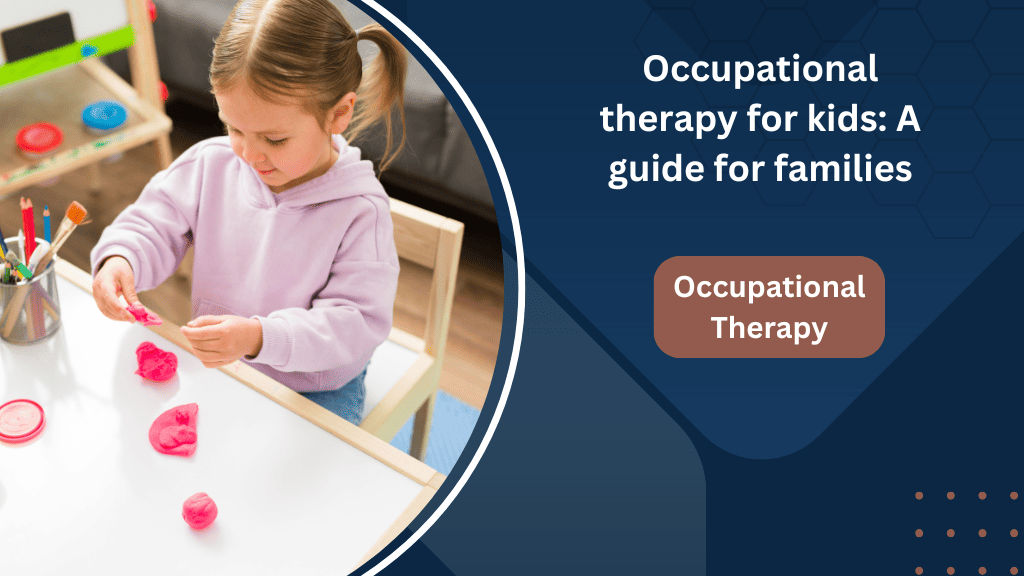
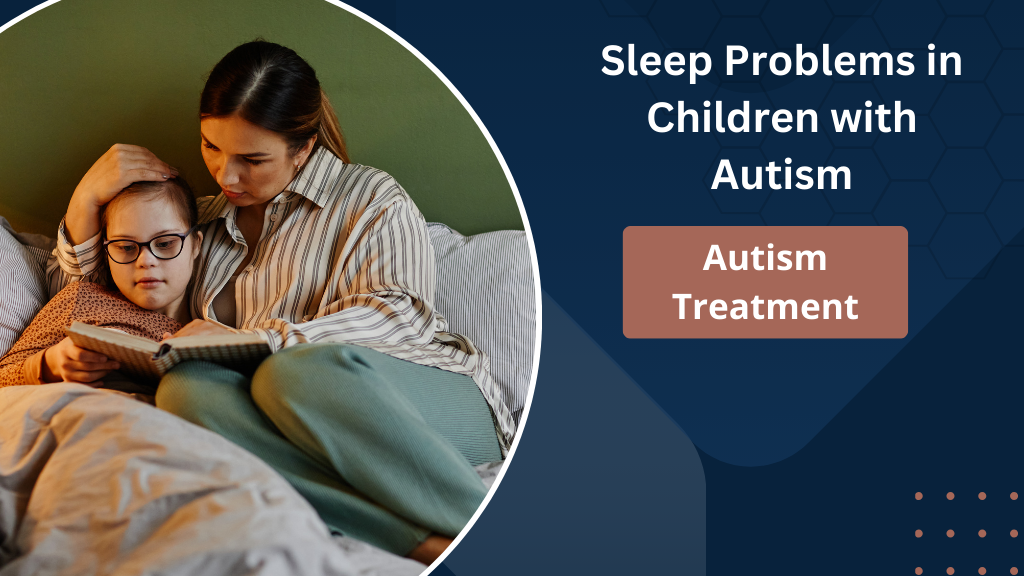
Sleep Problems in Children with Autism and Ways to Improve It
